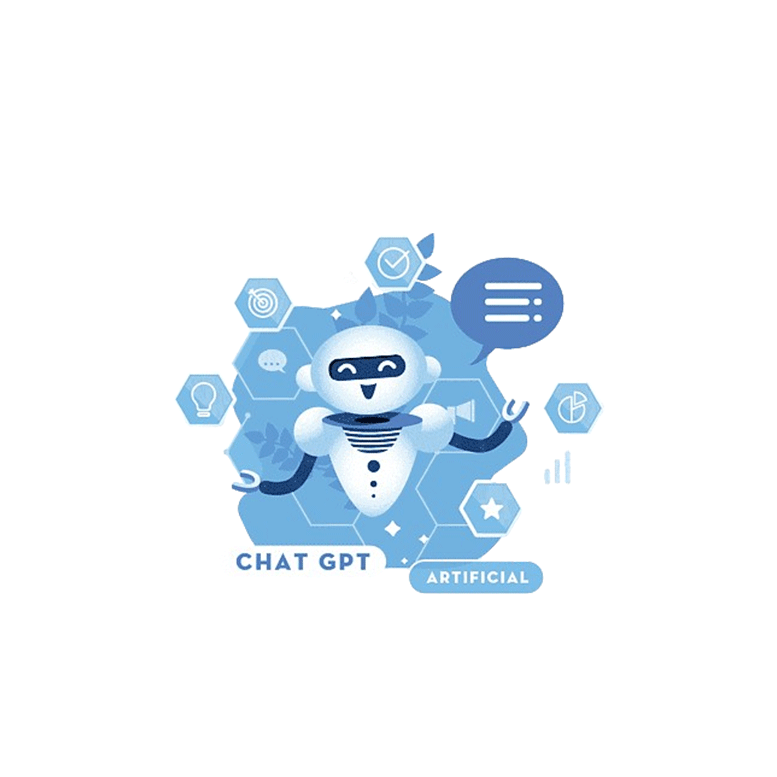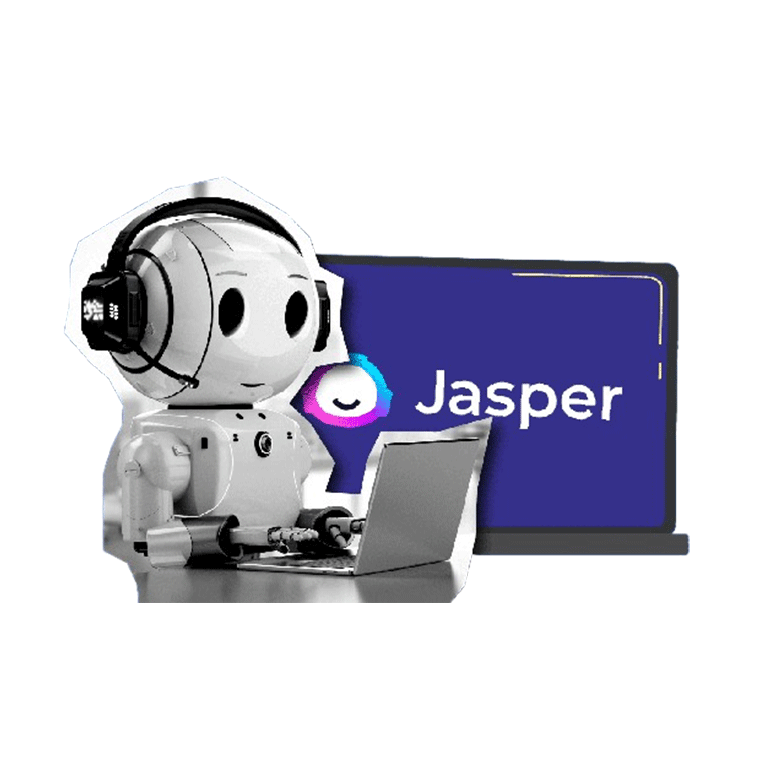Ai Tools

ChatGPT
ChatGPT is an AI-powered language model by OpenAI designed to assist with generating human-like text. It can answer questions, engage in conversations, and help with writing tasks across various topics.

Jasper Ai
Jasper AI is an advanced AI-powered writing assistant designed to help users generate high-quality content quickly. It offers features like content creation, copywriting, and SEO optimization for various use cases.

Deepseek
DeepSeek’s innovative approach has prompted discussions about the future of AI development and the potential for more efficient, open-source models.
The Transformative Power of AI Tools in the Digital Era
Artificial Intelligence (AI) is no longer a futuristic concept confined to science fiction. It has seamlessly integrated into our daily lives, influencing everything from how we communicate to how businesses operate. AI tools, in particular, have become indispensable, providing innovative solutions to complex problems across diverse industries. In this blog, we delve into the world of AI tools, exploring their applications, benefits, and potential to reshape the future.
What Are AI Tools?
AI tools refer to software, platforms, or frameworks that leverage artificial intelligence to perform tasks that traditionally required human intelligence. These tasks include data analysis, natural language processing, image recognition, decision-making, and more. AI tools are designed to enhance productivity, improve accuracy, and drive innovation by automating repetitive or complex tasks.
Applications of AI Tools Across Industries
Healthcare
AI tools are revolutionizing healthcare by enabling early diagnosis, personalized treatment plans, and predictive analytics. For instance, tools like IBM Watson Health analyze vast amounts of medical data to identify potential health risks and recommend interventions.
AI-powered chatbots and virtual assistants are enhancing patient engagement by providing instant responses to queries, scheduling appointments, and even offering mental health support.
Education
AI tools in education are making learning more accessible and personalized. Platforms like Duolingo and Coursera use AI algorithms to tailor lessons based on individual learning paces and preferences.
AI-driven analytics help educators identify areas where students struggle, enabling targeted interventions to improve outcomes.
Finance
Financial institutions leverage AI tools for fraud detection, risk assessment, and customer service. AI-driven systems analyze transaction patterns to flag suspicious activities, enhancing security.
Robo-advisors like Betterment and Wealthfront provide automated investment advice, making financial planning more accessible to a broader audience.
Retail and E-Commerce
AI tools are transforming the retail experience by enabling personalized recommendations, inventory management, and dynamic pricing.
Virtual try-ons and AI-powered chatbots are enhancing customer engagement, driving sales, and improving overall satisfaction.
Marketing and Advertising
AI tools like HubSpot and Marketo automate marketing campaigns, analyze customer behavior, and optimize ad placements for maximum ROI.
Sentiment analysis and social listening tools provide insights into consumer preferences, helping brands craft more effective marketing strategies.
Manufacturing
In manufacturing, AI tools are used for predictive maintenance, quality control, and supply chain optimization. AI-driven robots and automation systems enhance efficiency and reduce downtime.
Tools like Siemens’ MindSphere analyze data from machines to predict failures and recommend preventive measures.
Human Resources
AI tools streamline recruitment processes by screening resumes, scheduling interviews, and even conducting initial assessments through chatbots.
Platforms like LinkedIn Talent Insights provide data-driven insights into hiring trends, enabling companies to make informed decisions.
Benefits of AI Tools
Increased Efficiency
AI tools automate repetitive tasks, freeing up time for professionals to focus on more strategic activities. For example, in data analysis, AI can process vast datasets in seconds, a task that would take humans hours or even days.
Improved Accuracy
By minimizing human error, AI tools enhance accuracy across various applications, from medical diagnoses to financial forecasting.
Cost Savings
Automation reduces the need for manual labor, cutting operational costs. Additionally, predictive analytics can help businesses avoid costly mistakes and optimize resource allocation.
Scalability
AI tools enable businesses to scale operations without proportional increases in resources. For example, AI chatbots can handle thousands of customer queries simultaneously, ensuring consistent service.
Enhanced Decision-Making
AI tools provide data-driven insights, empowering organizations to make informed decisions. By analyzing trends and patterns, businesses can anticipate market changes and adapt proactively.
Challenges and Considerations
While AI tools offer immense potential, their adoption comes with challenges:
Data Privacy and Security
The use of AI tools often involves processing sensitive data, raising concerns about privacy and security. Organizations must ensure robust data protection measures to maintain user trust.
Bias and Fairness
AI algorithms can inadvertently perpetuate biases present in training data, leading to unfair outcomes. Ensuring fairness requires continuous monitoring and improvement of AI models.
Skill Gap
Implementing AI tools requires specialized knowledge, creating a skill gap in the workforce. Companies need to invest in training and upskilling to maximize the benefits of AI.
Cost of Implementation
Developing and deploying AI tools can be expensive, particularly for small businesses. Cloud-based AI services and open-source platforms can help mitigate costs, but initial investment remains a barrier.
The Future of AI Tools
The evolution of AI tools is poised to accelerate, driven by advancements in technology and growing demand for automation. Key trends shaping the future include:
Integration with IoT
The Internet of Things (IoT) and AI are converging to create smart systems that can monitor, analyze, and respond in real-time. From smart homes to industrial automation, the possibilities are vast.
Natural Language Processing (NLP)
As NLP technologies advance, AI tools will become more adept at understanding and generating human language. This will enhance their applications in customer service, content creation, and more.
Ethical AI
With growing awareness of ethical concerns, future AI tools will prioritize transparency, fairness, and accountability. Regulations and standards will play a crucial role in guiding development.
Edge AI
Edge AI, which involves processing data on devices rather than centralized servers, will gain traction. This approach reduces latency, enhances privacy, and enables real-time decision-making.
Conclusion
AI tools are transforming the way we work, learn, and interact, offering unprecedented opportunities for innovation and growth. From automating mundane tasks to providing deep insights, these tools are reshaping industries and enhancing human capabilities. As we embrace this technological revolution, it is essential to address the challenges and harness the full potential of AI tools responsibly. The future is undoubtedly AI-driven, and those who adapt will thrive in the evolving digital landscape.
Write something…
